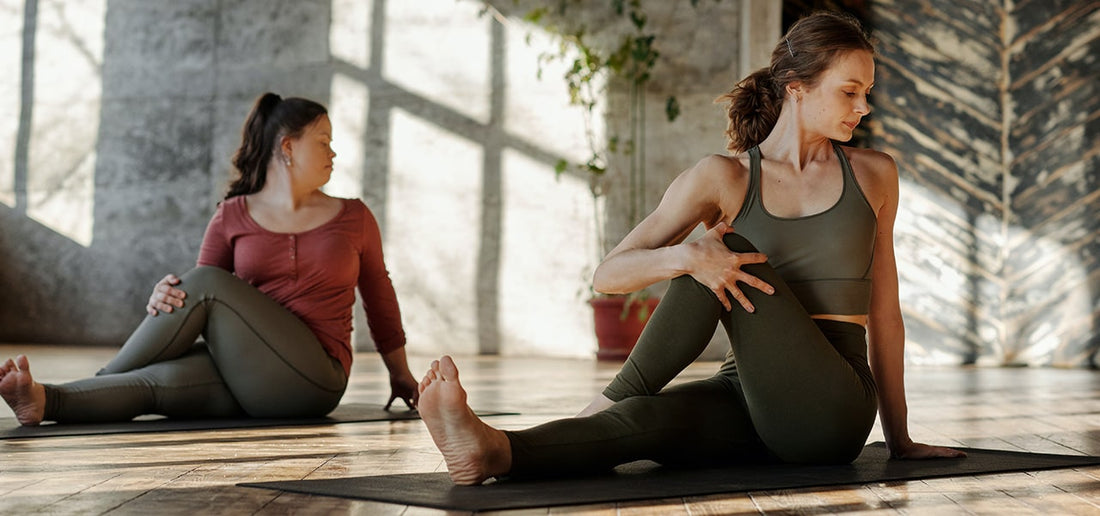How to motivate yourself to exercise early in the morning

Regular morning exercise has many health benefits, including:
Although it is a great way to start the day on a positive note, many people find it difficult to achieve. This may be because you are a night owl who finds it difficult to get up early, 4 or that you simply don't feel like or have the motivation to get out of bed and exercise. 5
One could argue that it is easiest to exercise in the evening because you are more alert and your muscles are better warmed up. However, intense exercise close to bedtime is known to interfere with sleep. 6 In addition, it can be easy to skip an evening workout because of work or because of exhaustion after the day's exertions.
So what can be done? Since the root of the problem is often related to sleep and the feeling of rest, we have compiled a list of science-based tips to help you improve your sleep and find that extra motivation for your morning workout.
1) Follow a sleep schedule
The recommended amount of sleep for adolescents and adults is between 7 and 9 hours a day. Without a sufficient amount of quality sleep, you simply don't feel rested. 7 But when you're not rested, you also lack the motivation to exercise. 8
It is therefore worth developing a fixed routine that allows for 7 to 9 hours of uninterrupted sleep. Of course, this sleep rhythm should not clash with your personal or professional commitments. Remember that behavioral studies show that changing too quickly does not necessarily lead to positive results. 9 Try to gradually adjust to your new and desired sleep schedule.
2) Follow a training program
Just as you condition your body to a new sleep pattern, you should also condition your mind to a new exercise routine. Most adults are advised to exercise 75 to 150 minutes per week to stay fit and healthy. 10 While this may sound like a huge amount, it's worth breaking this time down into fifths and spreading it evenly throughout the week so that you have two rest days.
Plan what you will do so that you know what to expect on the day of your workout. Try to find a balance between aerobic activities (like jogging, swimming, cycling, etc.) and muscle-strengthening exercises to positively impact your health. 11
Also, incorporate new exercises into your workout routine that are fun. One study found that performing new exercises can lead to what is known as a "flow experience," where you block out negative thoughts and fully engage in the activity - thereby alleviating boredom and increasing motivation for similar experiences in the future. 12
3) Organize your sports clothes and equipment the night before
Make it as easy as possible to go from waking up to working out by getting everything ready the night before. The fewer steps you have to take to complete your workout, the more likely you are to actually get it done.
Whether it's running gear, gym equipment, a towel and water bottle, or just your trainers and headphones, pack everything you need for your workout before you go to bed. That way, when you wake up, you won't have to worry about gathering everything, packing a bag and motivating yourself to workout.
4) Train with someone
A good way to stay on track and stick to your new exercise program is to train with someone. 13 Studies have shown that exercising with a partner or friend can help increase your motivation and commitment to exercise and give you a sense of accountability. 14 Additionally, a coach, trainer or mentor can help you if you have concerns or questions about your training, and can also support you by offering help when you need it. 15 All this means that social support can play an important role in motivating people to exercise. 16
Interestingly, one study found that exercising with a romantic partner helps maintain exercise routines and enriches shared experiences in everyday life. 17
5) Meal Prep helps you save time
Experts disagree on whether it is best to eat before or after training, 18 but whatever works for you, prepare your meals in advance to reduce the number of things you have to do in the wake-up phase.
Whether it's a bottle of pre-workout powder or a healthy breakfast waiting for you in the fridge, preparing your meals in advance means you don't have to rush to prepare something before or after your workout - one less thing to expend energy on and one less step in your morning routine.
6) Don’t hit the snooze button
As tempting as it may be, don't hit the snooze button in the morning to get a few extra minutes of sleep before your workout. There is evidence that interrupted or fragmented sleep caused by hitting the snooze button can have a negative impact on your mood and cognitive abilities. 19 And the last thing you want to do when you're tired and dizzy is exercise.
It is recommended to stick to a single alarm. 20 We recommend setting a wake-up time that you know is realistic, allows for enough sleep, and won't leave you rushed or panicked in the morning when you're trying to exercise and meet your other personal or work obligations.
7) Document when, where and how long you will train
In 2001, a study by the British Journal of Health Psychology examined the exercise habits of 248 participants over a two-week period. 21 The study was divided into three groups: those who were asked to write down how often they exercised, those who also had to read motivational material, and those who received motivational material but were also asked to write down the day, time and place of their workout, as well as the duration of the workout.
In the first and second groups, 35-38% trained at least once a week: The motivational materials seemed to have little to no effect. But 91% of the group who had written down the details of their training trained at least once a week, 22 meaning that this simple measure increases the likelihood that participants will stick to their training goals.
If you find it difficult to motivate yourself to exercise for half an hour or more in the morning, start by exercising for 10 minutes at a time and increase to 15, then 20 minutes until you reach your ideal goal.
This will make you feel rested and motivated
Research has shown that poor sleep can negatively affect the maintenance of habitual exercise (and that habitual exercise can positively affect sleep). 23 That is why some of the tips we recommend focus on good sleep hygiene and knowing how to sleep well .
If you are still tired or sleepy in the morning despite the tips above, you should stop taking B・SYNC ON consider - a sleep inertia supplement that helps you wake up with ease. It can be taken daily or just as needed and helps you reset your internal clock. This means that when you wake up, you'll feel refreshed and much more ready to get out of bed, put on your workout clothes and start your workout.
Sources
- https://www.ncbi.nlm.nih.gov/pmc/articles/PMC4703705/
- https://www.iosrjournals.org/iosr-jdms/papers/Vol19-issue12/Series-14/A1912140107.pdf
- https://pubmed.ncbi.nlm.nih.gov/25540588/
- https://www.sciencedaily.com/releases/2019/02/190214191937.htm
- https://www.ncbi.nlm.nih.gov/pmc/articles/PMC3441783/
- https://link.springer.com/article/10.1007/s40279-018-1015-0
- https://www.cdc.gov/sleep/about_sleep/how_much_sleep.html
- https://www.ncbi.nlm.nih.gov/pmc/articles/PMC4341978/
- https://www.ncbi.nlm.nih.gov/pmc/articles/PMC6378489/
- https://www.nhs.uk/live-well/exercise/exercise-guidelines/physical-activity-guidelines-for-adults-aged-19-to-64/
- https://www.ncbi.nlm.nih.gov/pmc/articles/PMC6536904/
- https://www.frontiersin.org/articles/10.3389/fpsyg.2020.577522/full
- https://www.ncbi.nlm.nih.gov/pmc/articles/PMC6037047/
- https://www.ncbi.nlm.nih.gov/pmc/articles/PMC2998537/
- https://pubmed.ncbi.nlm.nih.gov/11769979/
- https://journals.plos.org/plosone/article?id=10.1371/journal.pone.0256546
- https://journals.sagepub.com/doi/abs/10.1177/02654075211012086
- https://greatist.com/fitness/is-it-better-to-eat-before-or-after-a-workout
- https://www.ncbi.nlm.nih.gov/pmc/articles/PMC6689426/
- https://www.ncbi.nlm.nih.gov/pmc/articles/PMC6689426/
- https://jamesclear.com/implementation-intentions
- https://bpspsychub.onlinelibrary.wiley.com/doi/10.1348/135910702169420
- https://www.ncbi.nlm.nih.gov/pmc/articles/PMC4341978/













